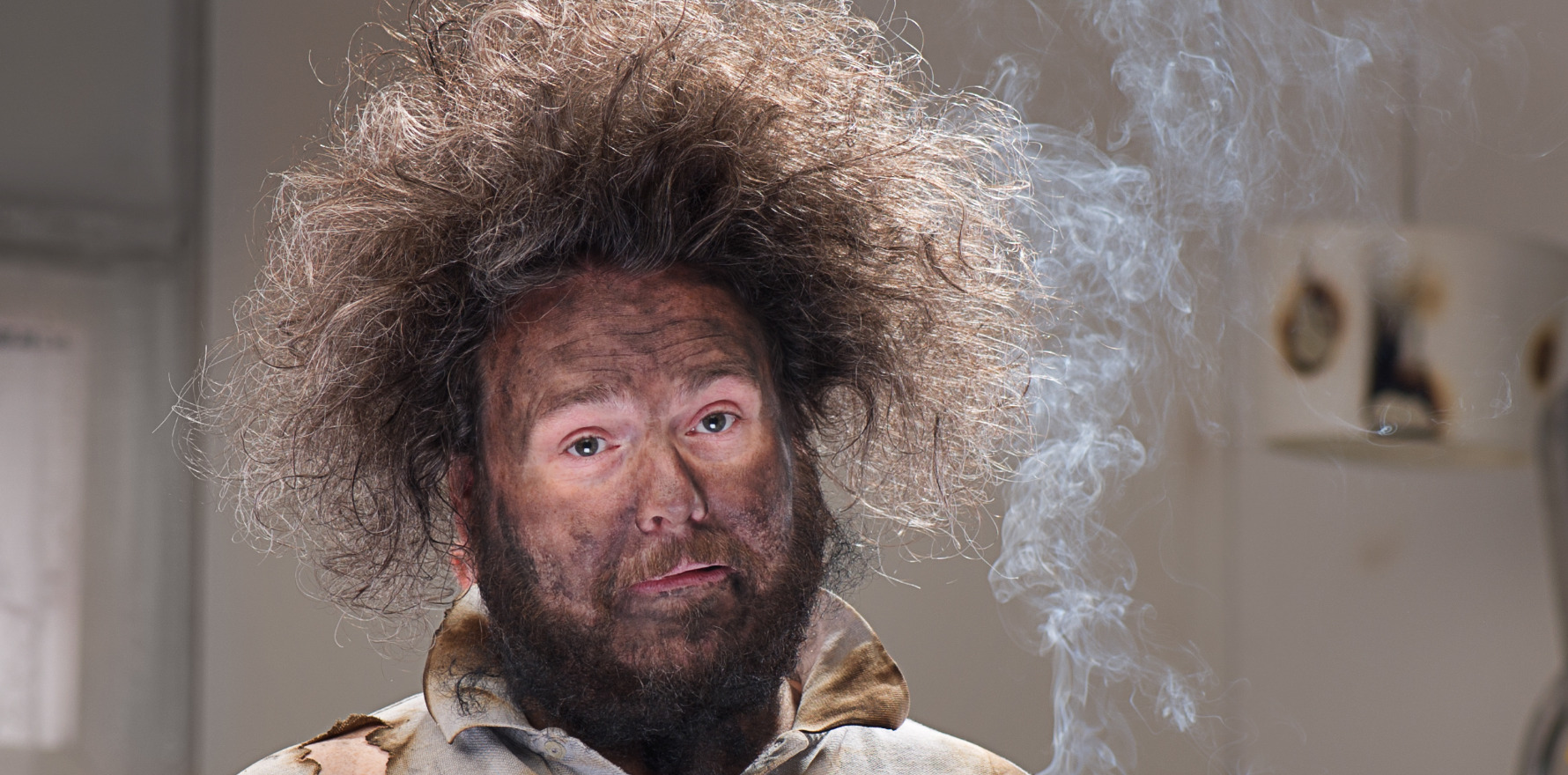Once-were-tenant doctors need to get their own advice now before the ATO and SROs come calling.
RevenueSA’s payroll tax amnesty process has lit the fuse on a far bigger mess than payroll tax.
So far the response from the RACGP and most of the practices which have been deemed liable to pay payroll tax is that they are going to put the price of a typical consult up by at least $12, and won’t that be terrible for patients and the state.
But that is not the problem facing both patients and the practices now firmly in RevenueSA’s crosshairs.
The real problem is that if these practices don’t provide good reason within 60 days for RevenueSA to not start charging payroll tax, then the status of all their doctors, who were previously regarded as tenant doctors, changes. Each one may now have to face off the ATO over the next couple of years and explain why they’ve been doing their tax as sole traders or small businesses, when in fact, they might be (likely are) “deemed employees”.
Not only that, each entity that exposes itself to further regulatory bodies deeming their once-were-tenant doctors as employees, faces the prospect of their legal structures not being able to defend themselves against medical litigation against any of their doctors.
The idea of doctors not being employees was to cleanly disconnect them from the administrative entity (the landlord if you will) so the entity would not be drawn into potentially catastrophic legal cases.
Everybody seems to be forgetting this was the original reason for these structures, not tax avoidance.
Already TMR has had incoming calls from some of the SA doctors asking what will happen to them if their practice takes up the RevenueSA amnesty. Each one we have talked to has told us that they were not asked by their supposed landlord what their position was on the practice applying for an amnesty, and that there has been no discussion with them about what might happen to them if payroll tax was applied to the entity.
In other words, it looks like a lot of doctors who thought they were tenant doctors and had contracts which protected them in that respect, have been kept in the dark by the practices/entities they work at about the decision to apply for an amnesty.
These doctors thought that they were operating in well-structured service entities, not medical practices liable for payroll tax.
Time to make everyone’s legal and tax situation clear
You can see a few things possibly happening from here on in SA and then across the rest of Australia, none of them good.
Someone has to make it very clear to these once-were-tenant doctors exactly what the status of the law is in terms of a state essentially deeming what we all thought were tenant doctors as “employees”. There also needs to be definitive advice on whether significant changes to the law and tax rulings at the federal level at the end of 2023 won’t also lead the ATO to deem some or all of these tenant doctors as employees as well.
At this stage nobody knows, but some people have been handing out advice to some of these doctors and their administrative entities which feels like it is either outdated, or simply wrong: that while a state revenue office can deem tenant doctors as employees, the original contractor status of these doctors will still be seen as contractor status at the federal level for income tax purposes, so there will be no problems with the ATO afterwards.
It’s hard to see how someone can be giving any doctor this advice at this point of time. Major changes and clarifications around “deemed employees” for income tax purposes happened as late as December last year. You can read about those changes here.
Pointing to the ruling, and related federal cases which led to the ruling, the article states “the ATO has issued guidance on how it defines an ‘employee’ and says businesses will need written agreements that reflect how tasks are performed to avoid the risk of a PAYG or superannuation audit”.
How would it be that RevenueSA has looked at the contracts at 283 practices and said, nope, these people are employees not contractors, but the ATO won’t do that?
There has been no time for these changes to be tested but with the SA payroll tax amnesty situation, we have one giant batch of people and businesses to test the new interpretations of these laws and rulings. And unfortunately for all concerned the identification of everyone involved is being made very public to the ATO so it’s not like it won’t be watching.
RevenueSA has asked each of the 283 practices for more detailed information about their set up going backwards before the 60-day deadline is up, the period in which they can object.
Why are they asking for more information if they’ve told each practice they are already done like dinners, payroll tax starts on 1 July, but that they have an amnesty?
Is there more to come here based on the more detailed data they are going to collect from these practices in the next 60 days?
RevenueSA will not answer our questions about this potential issue, or about the faint possibility that with more detailed information, a practice that is “eligible” for an amnesty might end up not being “eligible”.
Oh, and did everyone know that the data that RevenueSA collects on each of these practices, which will likely include detailed backwards data on all their “once tenant” doctors, will be available to the ATO to look at?
None of this sounds good.
Converting to payroll tax and putting fees up won’t solve the problem
The idea that a practice can throw their arms up in the air and say, along with the RACGP, “oh well we gave it our best shot on behalf of patients, but we’re going to have to put the price up $12 a consult” and move on with no other consequences, is very likely a delusion.
What happens if the ATO starts working on the individual doctors for having incorrect tax returns for the past 10 years, like the SROs have worked on the practice owners for not having the right structures, contracts, payment flows, and so on?
Here are a couple of possibilities:
- Individual doctors who thought they were tenants and aren’t according to SROs, and then got told they were still a contractor in the eyes of the ATO, might not actually be okay in the eyes of the ATO.
- That means that these entities that now think they are okay because they are just going to put the price up for patients to cover the payroll tax, will have a bunch of highly distressed and potentially enraged doctors working for them, who aren’t likely to want to work for them anymore. Some might even consider collective legal action.
- Part of that action might be to ask for all their annual leave, superannuation and so on going back 10 years.
- But there’s likely a lot more they could argue in terms of being misled in some way.
It does not feel like either the college or the practices that put their hands up for an amnesty have thought any of this through properly.
Chicken little?
If you are thinking here that this line of thinking is chicken little stuff and scaring people for no good reason, then go back three years and read some of the stuff we wrote about how the payroll tax situation might actually pan out soon after the Naaz decision in NSW.
We got tons of feedback then that what we were writing was unnecessarily scaring people and we should back off. As things have gone, it’s far worse than our original analysis predicted it could be.
All that I’m suggesting here is that those practices that have put their hands up for an amnesty, and now seem to be thinking they will just fold and pay payroll tax, need to go and get real advice on what actually could happen from an ATO and Fair Work perspective. They then need to work with their once-were-tenant doctors on what that advice says. They also need to understand whether rolling over for SROs on payroll tax will expose them to legal liability for any medical indemnity cases that their tenant doctors are hit with in the future and the past.
So far some of these practices seem to be fiddling around and hoping for the best, something which might explain why they never took heed of the original payroll tax cases a few years ago and attempted to get better advice and restructure.
If these practices don’t somehow come to the middle with their once-were-tenant doctors they face the very real prospect that their workforce will wake up and decide to leave or run some sort of class action against their former landlord.
Once-were-tenant doctors need to do something as well.
Each one needs to get their own advice because if the federal scenario pans out in the worst way, they are potentially going to be in the crosshairs of the ATO.
Tenant doctors are scared and in the dark
If all the practices in SA that got a letter from the SRO saying they owe payroll tax don’t already know – they definitely should – their once-were-tenant doctors are frightened to death at the moment … and for good reason.
Most of them have no clue what to do because a lot of them came to work for a corporate or a bigger practice for the precise reason that a lot of stuff around them would be looked after and they could just focus on practicing medicine.
They trusted the contracts that they were given, the payment systems and flows that were set up for them, and so on, were all legitimate.
Unfortunately, this dynamic in itself is some evidence that a lot of the so-called tenant doctors were never really tenant doctors. If you join an entity because you want someone to look after everything for you, you aren’t really your own business, are you? You are more like an employee.
And in this, the tenant doctors who came to work for these entities that are now essentially crossing their fingers, hoping the problems above don’t manifest themselves, need to urgently do their own due diligence.
What a mess.
What SA means for the rest of Australia
Is what is happening in SA today the front end of a massive tidal wave that will start breaking soon across all the other states?
Queensland offered an amnesty as well. Does anyone think that anything different will happen there?
Alarmingly, some people do think it will be different.
Some people think that the far more detailed ruling in Queensland, which is quite specific about payroll tax not being owed on monies that genuinely flow from a patient to a tenant doctor first, will save most practices in that state from any liability.
It’s one reason why the RACGP wanted SA, NSW and Victoria to come out with similar, more detailed rulings. The RACGP seems to still be clinging to some hope that there will be a simple fix to the problem.
There is no simple fix to the problem
This problem is complex and requires careful thought on the part of an entity owner to make sure that their intent and structure in having a service entity is correct and does not make them liable for payroll tax.
In Queensland, even if the money flows aren’t captured so they don’t have a lot of liability, the QRO is declaring in most instances that the doctors are employees and technically each entity is payroll tax liable in some way. That will have a flow-on effect at the federal level with the ATO, just like in SA.
As things go, it doesn’t even look likely that the QRO will accept how most practices who have submitted themselves for amnesty have structured their payment flows – its in an updated ruling reported here — and they will still owe large sums of payroll tax.
The tragedy here is there are lots of practices now which either already have their act together, or are getting it together in terms of being structured in a way that will survive a payroll tax audit.
It’s not easy or cheap but service entities can get the structure, the payment flows, the contracts and the significantly detailed rest that they have to do — websites for tenant doctors, for example – right in a manner that makes each entity able to justify their structure as administrative entities, not medical practices with faux contract doctors. These practices are repelling SRO audits.
What is horrifying about the SA situation is that in essence we have more than half the state’s practices admitting more or less that they did nothing about all the warnings they got on fixing up their structures and making sure documents around the intent of the structure were corrected, even though the hazard lights on this issue were blinking brightly more than three years ago.
What were they thinking?
It looks like most or all of these practices sat back and waited for a miracle. It looks like they bought into the early RACGP and AMA narrative that the government just couldn’t do this: that they wouldn’t get away with it somehow because GPs were so important to the system.
Practice lawyers and accountants probably have some liability
A statement from the SA treasurer Stephen Mullighan this week in response to questions around the amnesty, is pretty telling, and might provide some hints on how some practices might still be able to get out of the clutches of RevenueSA.
Talking to ABC radio in Adelaide Mr Mullighan said what they were asking practices for was not a new tax, nor a reinterpretation, but rather a “longstanding tax obligation” under the Payroll Tax Act for 15 years.
“What’s come to light in recent months is there had been a large number of medical practices which had been structured in a way based on the advice they’d had from their lawyers and accountants to try and avoid paying payroll tax obligations,” Mr Mullighan said.
That’s an all-over-red-rover statement and not entirely inaccurate either.
But what’s really important is that Mr Mullighan is on the public record firmly pointing the finger at the accounting and legal advisors of all the entities who he is insinuating gave their clients very bad advice.
A practice owner can argue intent and bad advice as a defence of their situation. If their original intent was always to protect themselves from medical litigation and not avoid tax, and they subsequently got bad advice that framed their structure differently in the eyes of the regulators, then they might get off in court. At the least they will probably not get a penalty from an SRO.
Outide of yet another go at getting a state government to alter payroll tax law the RACGP appears to be wishfully thinking that if RevenueSA revises its ruling in line with the one in Queensland, then all their practices might be able to skip out of paying payroll tax based on payment flows.
But this is not even likely to happen in Queensland. And even it did, just like in Queensland, RevenueSA would be putting a giant target on the back of all these practices and their tenant doctors by alerting the ATO that although the money is flowing in a manner they can’t access it for payroll tax, all the structure and contracts point to these entities having employees, not tenant doctors.
Practice owners and tenant doctors need to get their own advice and quickly, not rely on the RACGP or the AMA to get government to reverse tax laws just for doctors or revise their rulings in the manner Queensland has.
Greatest disruption in general practice history
If what has now unfolded across SA unfolds across Australia, and there is nothing currently to say it won’t, what we have is the greatest disruption and re-organisation of the general practice sector in history.
It’s set to make Medicare rebate freezes look like a minor irritation.
Let’s look at what could happen if what has now almost certainly happened in SA spreads across the country:
- In a short space of time, more than 50% of practices will be opting to pay payroll tax, or will be under imminent threat of an audit, which, at least in NSW and Victoria, will include a back audit and penalties for up to seven years.
- All these entities will potentially have some exposure to the medical liability of the doctors operating on their premises, and this effect will likely operate backwards as well.
- In that same time, most of the of GPs working for these entities will enter an uncertainty zone around their future liability for income tax returns.
- Every once-were-tenant doctor who had been working at any of these practices will likely have only a couple of options if they want to minimise their dire situation:
- Abandon the practice they are currently leasing services from and rapidly try find a “safe harbour” practice – one that has its structures done correctly. On this note, you might imagine that some practices are going to become far less valuable and some far more valuable very quickly – there is going to be a great divide.
- Once-were-tenant doctors will then unfortunately need to pray that the practice they left did not provide their contract details going backwards to their local SRO (as the SA and Queensland SROs are asking for) and that these details are not somehow passed on to the ATO. In that instance this doctor still may get a call from the ATO at some point in the future.
- Once-were-tenant doctors decide to get together with some friends and start their own administrative entity, in which they and some other colleagues might be able to safely resume work as tenant doctors in a structure that can actually be defended from an SRO audit and might have some cool other things about it, like virtual practice technology. These new entities will add to the safe and valuable side of the new great divide.
One thing that no once-were-tenant doctor should do is sit back and hope that their service entity will fix things. That horse has bolted.
What the RevenueSA situation looks like it is telling us is that the practices who put in for an amnesty only had a plan to put consulting fees up to pay for payroll tax moving forward if they failed.
They don’t seem to have any plan that contemplates the potential ATO issues of their decision including what might happen to their own tenant doctors or a plan to cover the possible medical indemnity issues that doctors as employees create.
If this does all play out then in five years the general practice landscape might be radically different to what it looks like today.
The future of corporates becomes blurry
For one thing, it could easily be that corporates morph into something entirely unrecognisable or even disappear from the landscape altogether.
It is notable that in the 283 practices that put their hands up for an amnesty in SA, some of them were corporate practices.
That means, that as far as one SRO in Australia is concerned, those particular corporates are not compliant and owe payroll tax.
Being corporates, where everything is run the same way, would that not mean that every other practice of that corporate across Australia is probably in the same boat at the end of the day? And all the ensuing potentially issues outlined above will be in play.
One thing the corporates seemed to have strategised is that if they got amnesties in every state, then that would relieve them of potentially tens of millions in back tax liability. Maybe this is why some put their hands up in SA: to test the idea.
But NSW and Victoria are not offering amnesties. And in SA and Queensland, admitting liability is putting yourself in the direct firing line of the ATO for your entity and all the doctors who practice at your entity.
Some of the corporates have very bad history as far as creating centralisation and systems in their entities which indicate you are operating as a command and control medical practice not a hands-off, selling picks and shovels to the gold miners only, administrative entity.
Some corporates will tell you that they’ve done a lot of work on this issue now and fixed all their structural, contract and payment flow problems to the extent that they feel their entities would survive an SRO audit.
But if this is true why did some of them put up their hand for an amnesty in SA? None of them got a letter back saying, “nah, you’re good”.
This is especially since it is believed that some of the corporates who put up their hand for an amnesty in SA are the same ones who are putting their foot down in Victoria, saying they are going to take the Victorian SRO to court to fight audits.
Related
Write to your practice and ask these questions
Any tenant doctor of any of the 283 practices in SA that have been pinged should probably be writing an email to the management of these entities first thing Monday morning and asking:
- What is your definitive position on defending your entity as an administrative entity only and therefore my position as a tenant doctor?
- Given I have to some extent trusted that your entity is a true administrative entity not liable for payroll tax, what responsibility are you going to take for my leasing contract being void as far as the ATO is concerned if you are forced through a bad structure to pay payroll tax?
- If I get audited by the ATO and my income tax is found to be wrong because of all these issues, what responsibility falls at your feet for this problem?
- As my landlord what do you think I should do at this point of time given that our lease agreement seems to be in question and this situation might end up significantly threatening my income and the long-term viability of my small business?
Please don’t write to me and say I’m scaring people unnecessarily. I hope that none of this pans out in any way like I’ve outlined above.
But the questions posed here are all open questions and valid ones to be asking given the situation with tax law federally and at the state level.
It’s awful. But ducking your head and hoping this mess is just going to magically sort itself out or that governments are going to change tax law just for one profession, is not a strategy.
Get some advice and now, and if you’re confused keep getting advice until you are clear.
If you are a sole trader tenant doctor who can’t afford to get advice then pool resources with other tenant doctors who might be in your situation.
Do not rely on the advice or ideas the RACGP, the AMA or your landlord entity alone to fix your problem (for that matter do not rely on anything you read here too).
None of them can.





